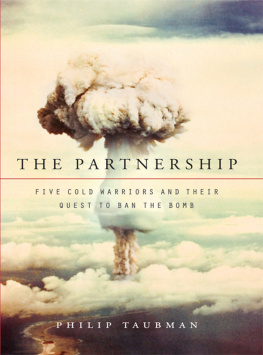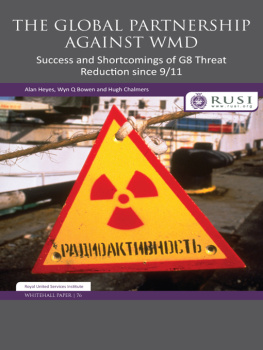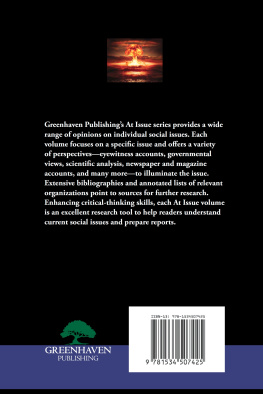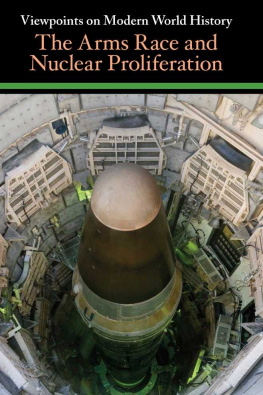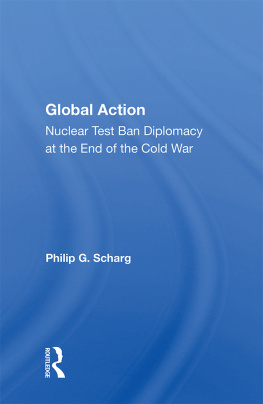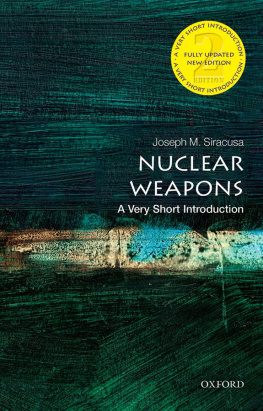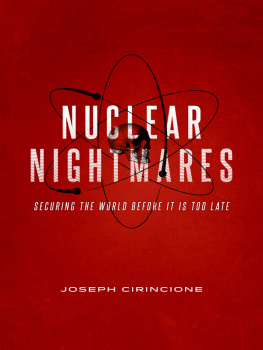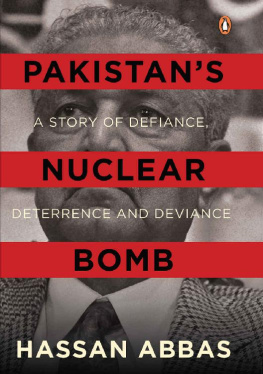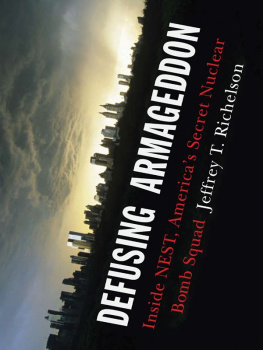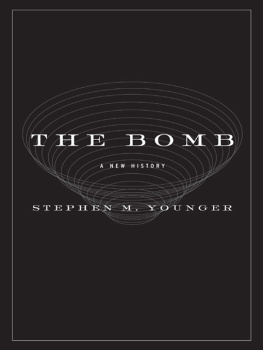THE
PARTNERSHIP

FIVE COLD WARRIORS AND THEIR
QUEST TO BAN THE BOMB

PHILIP TAUBMAN

An Imprint of HarperCollinsPublishers
www.harpercollins.com

F OR L ORI M ARCH W ILLIAMS
CONTENTS


B ook writing is at once the most singular and social of disciplines. Singular because there is no intermediary between writer and pen or keyboard. Social because the gathering of information for a nonfiction book like this one requires interaction with hundreds of people from the principal characters to the anonymous staff member who disappears into the recesses of a repository of historical papers to locate an invaluable document. I relied on the good advice and indispensable assistance of dozens of people during the three years I worked on this book.
Gabriela Aoun, my research assistant from start to finish, was my irreplaceable partner in this enterprise. She jumped to the head of a long line of qualified applicants by politely but firmly pressing her case, and that same quiet determination proved to be one of many attributes as we dug into the careers of George Shultz, Henry Kissinger, Bill Perry, Sam Nunn, and Sid Drell. Gabriela, a Princeton graduate, provided critical assistance in every phase of the project. Her fine research skills produced dozens of carefully organized binders packed with historical materials, many drawn from long hours burrowing into archival collections. Her research reports on various aspects of Cold War history and nuclear weapons policy were acute and well written. Her thoughtful advice about the shape and scope of the book helped to bring a sprawling project into focus. Once I began writing, Gabriela critiqued draft chapters with an insightful eye for both thematic points and fine-grain detail. Along the way she was invariably collegial and effervescent. Gabrielas great character and values defined everything she did.
I am grateful to George Shultz, Henry Kissinger, Bill Perry, Sam Nunn, and Sid Drell for cooperating with Gabrielas and my research work. They cleared time on their busy calendars for numerous interviews, invited me to countless public and private appearances, and welcomed me on several overseas expeditions. They understood from the outset that I would exercise sole control over the content of the book and never challenged that principle, even when it was clear that reporting for the book involved historical and policy matters they would have preferred not to exhume. Shultz, Nunn, and Drell provided access to previously closed personal archives and other historical materials, including, in Nunns case, an oral history he prepared as his service in the Senate neared an end. These proved to be rich resources that helped to fill out the chronicles of their careers.
Aides to each of the men were most helpful: Susan Schendel, who works with Shultz; Deborah Gordon, Perrys executive aide; Bonnie Rose, in Drells office; and Jessee Leporin, on Kissingers staff. Paige Mathes, who handled much of the administrative and record-keeping work involved with the nuclear disarmament initiative at the Hoover Institution, helped Gabriela and me in countless ways.
Sam Nunns colleagues at the Nuclear Threat Initiative (NTI) provided assistance on many fronts, including a reconstruction of meetings, conversations, and correspondence that led to the 2007 Wall Street Journal op-ed article that launched the nuclear initiative. Charles Curtis, Joan Rohlfing, Deborah Rosenblum, Steve Andreasen, and Isabelle Williams at NTI were unfailingly helpful. Cathy Gwin, who has worked with Nunn for years, was figuratively at my side every step of the way, opening doors in Washington and Atlanta, excavating Senate history, keeping me apprised of new developments, and clearing the way for me to attend closed events in the United States and abroad. Cathy is one of the most capable and fair-minded public affairs executives I have dealt with over four decades of reporting in Washington.
I am indebted to Vartan Gregorian, the president of the Carnegie Corporation of New York, who contributed pivotal financial support. Vartan and Stephen Del Rosso, director of Carnegies International Peace and Security Program, approved a grant at a critical moment when my funding resources were near depletion. Carnegie also supported my previous book on spy satellites.
My colleagues at Stanford University supported the project in tangible and intangible ways. Chip Blacker, director of the Freeman Spogli Institute for International Studies (FSI), encouraged me to do the book and provided the financial assistance that made it possible to have a full-time research assistant. John Raisian, director of the Hoover Institution, welcomed me to Stanford and worked with Chip to help get me settled at FSI.
My academic home at Stanford for the past three years has been the Center for International Security and Cooperation (CISAC), which is part of FSI. Scott Sagan and Sig Hecker, CISAC codirectors, welcomed me to the center as a consulting professor and provided workspace for Gabriela and me. What a home it has been! CISAC is populated with nuclear weapons experts, starting with Scott, one of the nations leading scholars on nuclear weapons policy, and Sig, who ran the Los Alamos National Laboratory for years before coming to Stanford. Both men generously shared their knowledge with me and made me feel at home. Tino Cuellar, who succeeded Scott as codirector in 2011, reaffirmed the warm welcome. Lynn Eden, CISACs research director and a nuclear weapons expert in her own right, offered expertise and wise counsel. David Holloway, historian and nuclear policy expert, graciously pointed me to research materials and guided me through the arcane world of nuclear weapons. Liz Gardner, who keeps CISAC humming as administrative chief, helped smooth my transition from journalism to the academy. Tracy Hill made the logistics of CISAC look easy. I am also grateful to the many other CISAC colleagues who offered a helping hand.
My return to Stanford after forty years in journalism was made all the more pleasant and productive by the welcome I received from John Hennessy, Stanfords president, and John Etchemendy, the provost. Gerhard Casper, who served as Stanford president from 1992 to 2000, played a key role in helping me get the book project launched and anchored at Stanford.
I had the good fortune to find three excellent part-time research assistants who worked with Gabriela intermittently, in each case for a few months. Kolby Hanson, now on assignment for Teach For America, tackled George Shultzs early years and wartime service; Niko Milonopoulos delved into Henry Kissingers handling of nuclear weapons policy; and Jason Saltoun-Ebin scoured the Reagan Library for materials related to George Shultzs service as secretary of state. The dozens of interviews conducted for this project were transcribed by Christine Sinnott.

